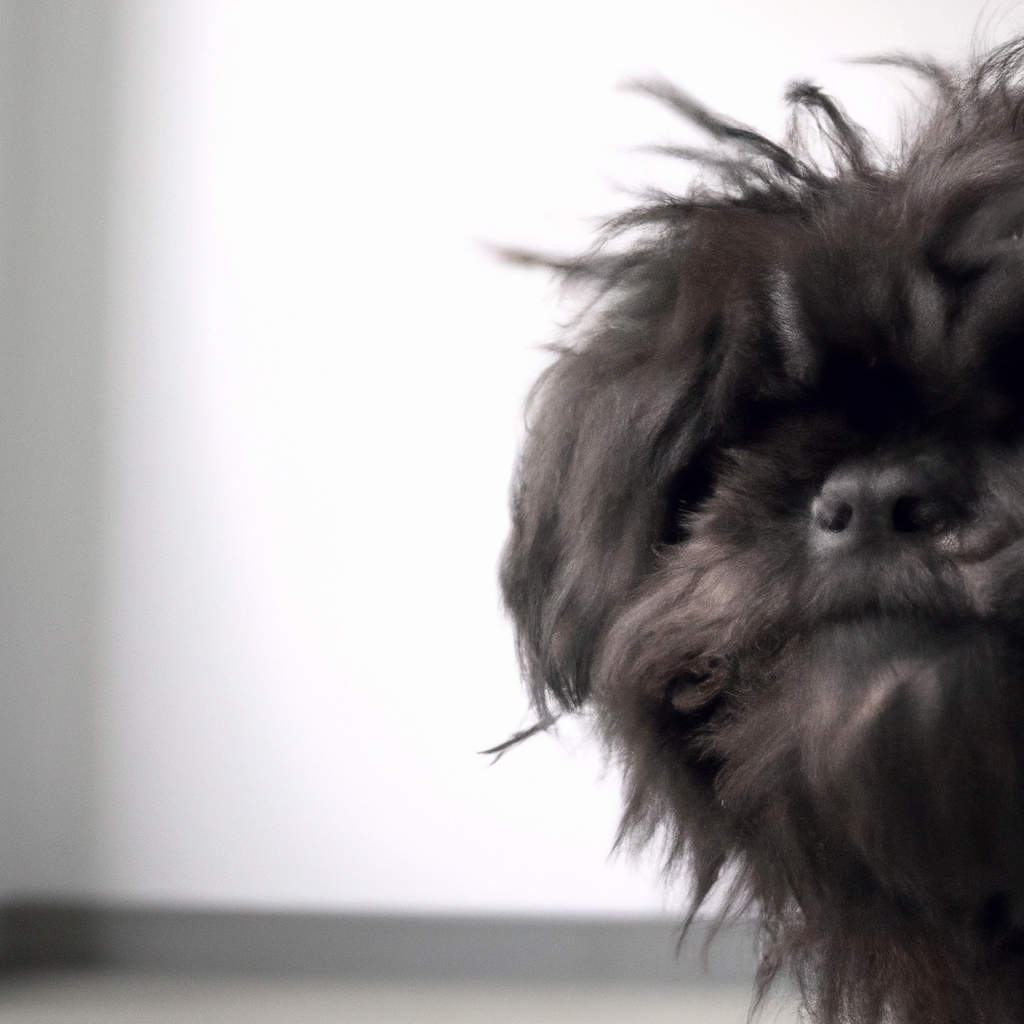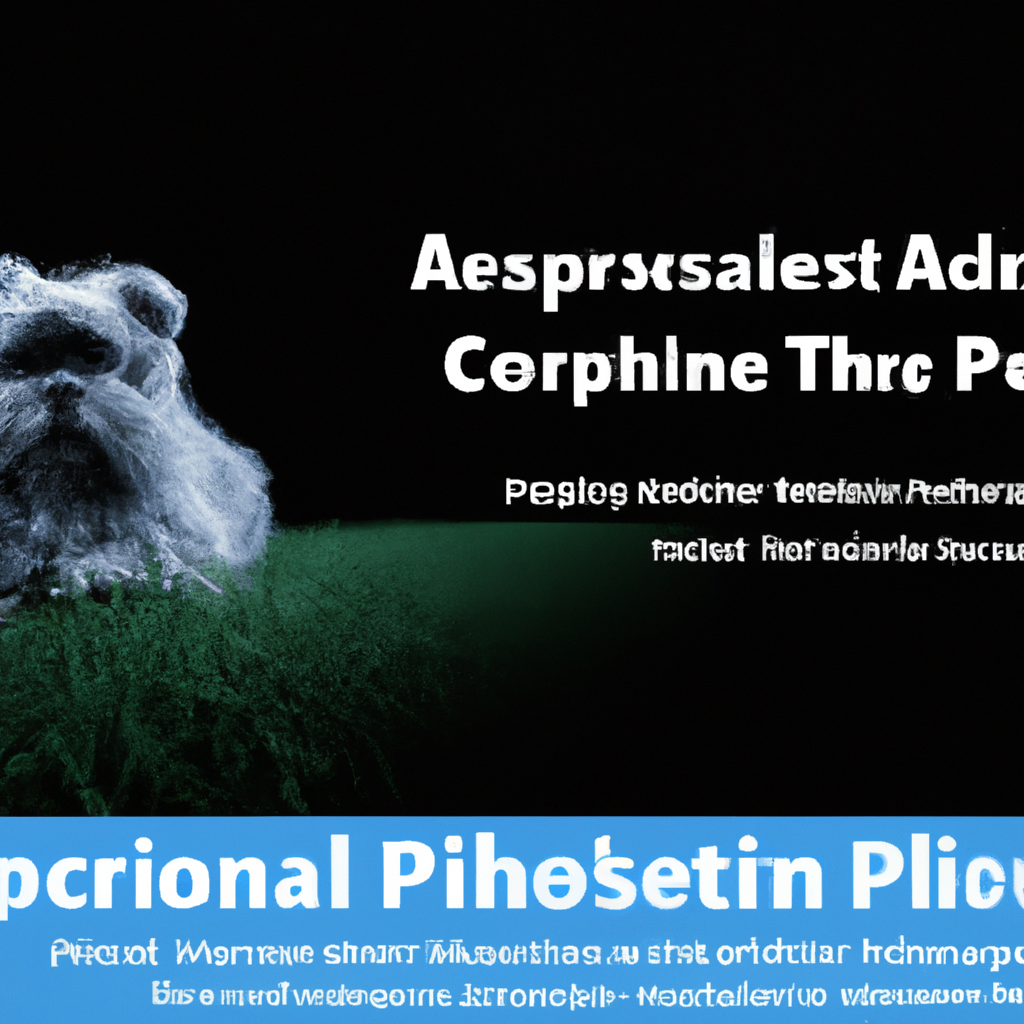Affenpinschers, like any breed of dog, are prone to certain health risks. These small, toy-sized dogs are generally healthy, but they can be susceptible to specific genetic and environmental conditions. Some of the common health risks include hip dysplasia, heart defects, respiratory issues, and eye problems such as cataracts and glaucoma. Symptoms of these conditions can vary, but may include limping or difficulty moving, coughing or difficulty breathing, changes in behavior, and changes in the appearance of the eyes. It’s important for Affenpinscher owners to be aware of these potential health risks and to monitor their pets for any signs of illness. Regular veterinary check-ups are also crucial for early detection and treatment of these conditions.
Understanding the Common Health Risks in Affenpinschers
Affenpinschers, often referred to as “Monkey Dogs” due to their distinctive, primate-like appearance, are a small breed of dog known for their playful and adventurous nature. Despite their small size, these dogs are full of energy and have a larger-than-life personality. However, like all breeds, Affenpinschers are prone to certain health risks that potential owners should be aware of. Understanding these risks and the symptoms associated with them can help ensure that your Affenpinscher lives a long, healthy, and happy life.
One of the most common health risks in Affenpinschers is hip dysplasia, a genetic condition that affects the hip joint. This condition can lead to discomfort, pain, and even lameness in severe cases. Symptoms of hip dysplasia can include difficulty standing up or climbing stairs, decreased activity, and an unusual gait. If you notice any of these symptoms in your Affenpinscher, it’s important to consult with a veterinarian as soon as possible. Early detection and treatment can help manage the condition and improve your dog’s quality of life.
Another health risk that Affenpinschers face is a condition known as patellar luxation. This is a common issue in small dogs, where the kneecap can easily slip out of place. Symptoms can include limping, an abnormal gait, or reluctance to put weight on a particular leg. Again, early detection is key, and treatment options can range from physical therapy to surgery, depending on the severity of the condition.
Affenpinschers are also prone to certain eye conditions, including cataracts and progressive retinal atrophy (PRA). Cataracts can cause cloudiness in the eye and can lead to decreased vision or even blindness if left untreated. PRA is a degenerative eye disorder that also leads to blindness. Symptoms for both conditions can include bumping into furniture, reluctance to go into dark rooms, or changes in eye appearance. Regular eye exams can help catch these conditions early and treatment options can help manage the symptoms.
Heart disease is another health risk that can affect Affenpinschers. This can include conditions like heart murmurs or even congestive heart failure. Symptoms can include coughing, difficulty breathing, decreased appetite, and lethargy. Regular check-ups with your vet can help detect heart conditions early, and medication can often help manage these conditions.
Lastly, like many small breeds, Affenpinschers can be prone to dental issues. Regular brushing and dental check-ups can help prevent problems like gum disease and tooth loss.
While it may seem like there are a lot of health risks associated with Affenpinschers, it’s important to remember that not all dogs will develop these conditions. Many Affenpinschers live long, healthy lives with the right care and attention. Regular vet check-ups, a balanced diet, and plenty of exercise can go a long way in keeping your Affenpinscher healthy. And remember, if you ever notice any changes in your dog’s behavior or appearance, it’s always best to consult with a vet. Early detection and treatment can make all the difference when it comes to managing these common health risks.
Symptoms of Hip Dysplasia in Affenpinschers
Affenpinschers, often referred to as “Monkey Dogs” due to their distinctive, primate-like appearance, are a small breed of dog known for their playful and adventurous nature. However, like all breeds, Affenpinschers are susceptible to certain health risks, one of the most common being hip dysplasia. This condition, which affects the hip joint, can lead to discomfort, pain, and even mobility issues if left untreated. Understanding the symptoms of hip dysplasia in Affenpinschers is crucial for early detection and treatment, ensuring your furry friend remains as healthy and happy as possible.
Hip dysplasia is a genetic condition that occurs when the ball and socket of the hip joint do not fit together properly. This misalignment can lead to the gradual deterioration of the joint, causing pain and limiting mobility. While it can affect any breed, it is more common in larger dogs. However, Affenpinschers are one of the smaller breeds that are also prone to this condition.
One of the first signs of hip dysplasia in Affenpinschers is a noticeable change in their gait. You might observe your dog limping or favoring one leg over the other, especially after a period of rest or in colder weather. This is due to the discomfort caused by the misalignment of the hip joint. As the condition progresses, your Affenpinscher may also show signs of stiffness or difficulty getting up from a lying or sitting position.
Another symptom to watch out for is a decrease in activity level. Affenpinschers are known for their energetic and playful nature. If you notice your dog is less interested in playtime or walks, or seems to tire more easily, it could be a sign of hip dysplasia. This is because the condition can make movement uncomfortable, leading your dog to avoid activities they once enjoyed.
In more advanced cases of hip dysplasia, Affenpinschers may also show signs of muscle loss in their hind legs. This is due to the decreased use of these muscles as the dog tries to compensate for the pain in their hip. You might notice that your dog’s hind legs appear thinner or less muscular than their front legs.
It’s important to remember that while these symptoms can indicate hip dysplasia, they can also be signs of other health issues. Therefore, if you notice any changes in your Affenpinscher’s behavior, gait, or physical appearance, it’s crucial to consult with a veterinarian. They can perform a thorough examination and, if necessary, recommend appropriate treatment options.
Treatment for hip dysplasia in Affenpinschers can range from lifestyle changes, such as a healthier diet and regular, low-impact exercise, to medication for pain relief, and in severe cases, surgery. The goal of treatment is to alleviate pain and improve quality of life.
In conclusion, while hip dysplasia is a common health risk for Affenpinschers, early detection can significantly improve the prognosis. By being aware of the symptoms and seeking veterinary care promptly, you can help ensure your Affenpinscher lives a long, healthy, and happy life.
Heart Disease in Affenpinschers: What to Look Out For
Affenpinschers, affectionately known as “Monkey Dogs,” are small, sturdy dogs known for their playful and adventurous nature. While they are generally healthy, they are not immune to certain health risks, one of which is heart disease. As a responsible Affenpinscher owner, it’s crucial to understand the potential health risks, symptoms, and preventative measures associated with heart disease in this breed.
Heart disease in Affenpinschers can take various forms, but the most common is mitral valve disease (MVD). This condition occurs when the heart’s mitral valve deteriorates, causing blood to flow backward into the heart. Over time, this can lead to an enlarged heart and, eventually, heart failure.
Now, you might be wondering, “What are the symptoms I should look out for?” Well, in the early stages, MVD may not show any noticeable signs. However, as the disease progresses, symptoms such as coughing, fatigue, loss of appetite, and difficulty breathing may become apparent. If your Affenpinscher exhibits any of these symptoms, it’s essential to consult with a veterinarian immediately.
Another heart condition that can affect Affenpinschers is Patent Ductus Arteriosus (PDA). This is a congenital heart defect where a blood vessel that normally closes shortly after birth remains open, leading to an abnormal flow of blood between the aorta and pulmonary artery. Symptoms of PDA can include lethargy, difficulty exercising, rapid breathing, and a decreased appetite.
While these conditions may sound alarming, it’s important to remember that early detection and treatment can significantly improve your Affenpinscher’s prognosis. Regular veterinary check-ups are crucial in catching any potential issues early on. During these visits, your vet may perform various tests, such as listening to your dog’s heart, taking x-rays, or conducting an echocardiogram, to assess your dog’s heart health.
In addition to regular vet visits, maintaining a healthy lifestyle for your Affenpinscher can also help prevent heart disease. This includes providing a balanced diet, ensuring regular exercise, and avoiding obesity. It’s also recommended to avoid exposing your dog to secondhand smoke, as this can increase the risk of heart disease.
Genetics also play a role in your Affenpinscher’s heart health. If you’re considering adding an Affenpinscher to your family, it’s advisable to choose a reputable breeder who tests their breeding dogs for genetic diseases. This can help ensure that your new furry friend has the best chance of leading a healthy, happy life.
In conclusion, while heart disease is a potential health risk for Affenpinschers, it’s not a guaranteed fate. By being aware of the symptoms, ensuring regular veterinary care, and promoting a healthy lifestyle, you can help your Affenpinscher live a long and healthy life. Remember, early detection is key, and any changes in your dog’s behavior or health should be discussed with your vet. After all, our furry friends rely on us to look out for their well-being, and there’s nothing more rewarding than seeing them thrive.
Affenpinschers and Eye Problems: Recognizing the Signs

Affenpinschers, affectionately known as “Monkey Dogs,” are small, sturdy dogs known for their playful and adventurous nature. While they are generally healthy, they are prone to certain health conditions, including eye problems. As an Affenpinscher owner, it’s crucial to recognize the signs of these issues early on to ensure your furry friend gets the treatment they need.
One common eye problem in Affenpinschers is Progressive Retinal Atrophy (PRA). This genetic condition causes the gradual deterioration of the retina, leading to diminished vision and, eventually, blindness. Early signs of PRA include difficulty seeing at night or in low light. As the disease progresses, your Affenpinscher may become hesitant to navigate unfamiliar areas or bump into objects.
Another eye condition that Affenpinschers are susceptible to is cataracts. Similar to humans, cataracts in dogs cause a clouding of the lens, which can impair vision. Symptoms of cataracts include a noticeable cloudiness in the eye, clumsiness, or a reluctance to jump or climb. If left untreated, cataracts can lead to blindness. However, surgery is often an effective treatment option.
Corneal ulcers are also a concern for Affenpinschers. These painful sores on the outer layer of the eye can be caused by trauma, dry eye, or an untreated infection. Symptoms include redness, excessive tearing, squinting, and sensitivity to light. If you notice these signs, it’s important to seek veterinary care immediately as corneal ulcers can lead to vision loss if not treated promptly.
Dry eye, or Keratoconjunctivitis Sicca (KCS), is another condition that can affect Affenpinschers. This occurs when the dog’s body doesn’t produce enough tears to keep the eyes lubricated, leading to discomfort and potential vision problems. Signs of dry eye include redness, discharge, and a constant effort to rub or scratch at the eyes.
Glaucoma, a condition caused by increased pressure in the eye, is also seen in Affenpinschers. This can lead to pain and eventual blindness if not treated early. Symptoms of glaucoma can include redness, cloudiness, excessive tearing, or an apparent enlargement of the eye.
While these eye conditions sound scary, remember that early detection is key. Regular veterinary check-ups are essential in catching these issues before they progress. Additionally, being aware of your Affenpinscher’s normal behavior and eye appearance can help you spot any changes that may indicate a problem.
If you notice any changes in your Affenpinscher’s eyes, such as cloudiness, redness, excessive tearing, or changes in behavior like bumping into objects or reluctance to jump or climb, it’s important to consult with your vet right away. They can conduct a thorough examination and recommend the best course of treatment.
In conclusion, while Affenpinschers are prone to certain eye conditions, these can often be managed with early detection and appropriate treatment. As an Affenpinscher owner, your vigilance is key to ensuring your furry friend maintains good eye health and continues to live a happy, adventurous life.
Patellar Luxation in Affenpinschers: Symptoms and Risks
Affenpinschers, affectionately known as “Monkey Dogs,” are small, sturdy dogs known for their playful and adventurous nature. While they are generally healthy, they are prone to certain health conditions, one of which is Patellar Luxation. This condition, common in small dog breeds, is a knee disorder that can significantly impact an Affenpinscher’s quality of life. Understanding the symptoms and risks associated with Patellar Luxation can help you ensure your furry friend stays as healthy and happy as possible.
Patellar Luxation occurs when the dog’s kneecap, or patella, dislocates or moves out of its normal location. Picture this: the kneecap is like a train, and the groove in the femur is like the track. In a healthy knee, the “train” stays on the “track.” But in a dog with Patellar Luxation, the “train” jumps the “track,” causing discomfort and mobility issues.
Now, you might be wondering, how can you tell if your Affenpinscher has Patellar Luxation? The symptoms can vary, but there are a few telltale signs to watch out for. Your dog might start limping or hopping, especially after exercise. They might also show signs of discomfort when moving, or they might avoid certain movements altogether. In severe cases, your dog might not be able to move their leg at all. If you notice any of these symptoms, it’s crucial to consult with a vet as soon as possible.
The risks associated with Patellar Luxation are significant. If left untreated, it can lead to chronic pain, arthritis, and even loss of function in the affected leg. It’s also worth noting that Patellar Luxation can occur in one or both knees, and the severity can vary from mild to severe. In mild cases, the kneecap may only dislocate occasionally and return to its normal position on its own. In severe cases, the kneecap may be permanently dislocated and require surgery to correct.
So, what causes Patellar Luxation in Affenpinschers? It’s often a congenital condition, meaning it’s present at birth. It can also be hereditary, passed down from parent to puppy. However, it can also develop due to trauma or injury to the knee. Regardless of the cause, early detection and treatment are key to managing this condition and ensuring your Affenpinscher lives a comfortable, active life.
Treatment for Patellar Luxation typically involves managing the symptoms and preventing further damage to the knee. In mild cases, this might involve physical therapy and pain management. In more severe cases, surgery may be necessary to realign the kneecap and stabilize the knee joint.
In conclusion, while Patellar Luxation is a common health risk in Affenpinschers, it’s not a death sentence. With early detection, appropriate treatment, and a little bit of patience, your Affenpinscher can continue to live a happy, active life. As a responsible pet owner, it’s important to be aware of the symptoms and risks associated with this condition. After all, our furry friends rely on us to keep them healthy and safe.
The Risk of Dental Diseases in Affenpinschers
Affenpinschers, often referred to as “Monkey Terriers” due to their distinct primate-like appearance, are small but sturdy dogs known for their playful and adventurous nature. While these dogs are generally healthy, they are not immune to certain health risks, one of which is dental diseases.
Dental diseases in Affenpinschers are a significant concern that pet owners should not overlook. These conditions can range from mild issues like bad breath and tartar build-up to more severe problems such as periodontal disease and tooth loss. The risk of dental diseases in Affenpinschers is relatively high due to their small size and the structure of their jaws, which can lead to overcrowding of teeth. This overcrowding can create hard-to-reach areas where food particles and bacteria can accumulate, leading to plaque build-up and eventually, dental diseases.
One of the first signs of dental disease in Affenpinschers is bad breath. While it’s common for dogs to have a certain level of ‘doggy breath’, a sudden change or intensification of their breath’s smell could be a sign of underlying dental issues. Another symptom to watch out for is a change in eating habits. If your Affenpinscher is suddenly reluctant to eat, especially hard food, or if they’re chewing on one side of their mouth, it could indicate dental pain or discomfort.
Other symptoms of dental diseases in Affenpinschers include excessive drooling, pawing at the mouth, and visible signs of discomfort when eating or yawning. In more severe cases, you might notice swollen or bleeding gums, loose teeth, or even a change in the alignment of their teeth.
If you notice any of these symptoms, it’s crucial to seek veterinary attention immediately. Dental diseases can cause significant discomfort and pain for your Affenpinscher, and if left untreated, they can lead to more serious health issues. Bacteria from the mouth can enter the bloodstream and affect other organs such as the heart, liver, and kidneys, leading to life-threatening conditions.
Prevention is always better than cure, especially when it comes to dental diseases in Affenpinschers. Regular dental care is essential to keep your Affenpinscher’s teeth and gums healthy. This includes daily brushing of their teeth using a dog-friendly toothpaste and a soft-bristled toothbrush. Regular dental check-ups with your vet are also crucial. Your vet can perform professional cleanings to remove any plaque or tartar build-up and check for early signs of dental diseases.
Feeding your Affenpinscher a balanced diet can also contribute to their dental health. Dry kibble can help scrape off plaque from their teeth, while certain dental chews and toys can also aid in keeping their teeth clean.
In conclusion, while Affenpinschers are generally healthy dogs, they are prone to dental diseases due to their small size and the structure of their jaws. As a responsible pet owner, it’s essential to be aware of the symptoms of dental diseases and take proactive steps to maintain your Affenpinscher’s dental health. Regular dental care, coupled with a balanced diet and regular vet check-ups, can go a long way in ensuring your Affenpinscher’s teeth stay healthy and strong.
Affenpinschers and Skin Allergies: Identifying the Symptoms
Affenpinschers, affectionately known as “Monkey Dogs,” are small, playful, and energetic dogs that are loved by many for their unique appearance and lively personality. However, like any other breed, Affenpinschers are prone to certain health risks, one of which is skin allergies. Understanding the symptoms and causes of these allergies can help you ensure your Affenpinscher lives a happy, healthy life.
Skin allergies in Affenpinschers can manifest in various ways. The most common symptom is excessive itching, which can lead to scratching, biting, and licking of the affected areas. This constant irritation can result in redness, inflammation, and even hair loss. In severe cases, the skin may become thickened and discolored, a condition known as hyperpigmentation.
Another symptom to watch out for is the presence of hot spots. These are areas of skin that become inflamed and infected due to constant scratching or licking. They are usually red, swollen, and can be quite painful for your pet. If left untreated, hot spots can lead to more serious skin infections.
In addition to these physical symptoms, changes in your Affenpinscher’s behavior can also indicate a skin allergy. If your dog seems unusually restless, is constantly scratching or licking, or is showing signs of discomfort, it may be suffering from a skin allergy.
The causes of skin allergies in Affenpinschers can be numerous. They can be allergic to certain foods, environmental factors like pollen or dust mites, or even certain materials like plastic or rubber. Flea allergies are also common in Affenpinschers. In this case, it’s not the flea bite itself that causes the allergic reaction, but the flea’s saliva.
Identifying the cause of your Affenpinscher’s skin allergy can be a bit of a challenge. It often involves a process of elimination, which can be time-consuming and frustrating. However, it’s an essential step in managing your dog’s condition and improving its quality of life.
Once the cause of the allergy has been identified, treatment can begin. This usually involves avoiding the allergen, if possible. For example, if your Affenpinscher is allergic to a certain type of food, that food should be eliminated from its diet. If the allergy is caused by fleas, regular flea treatments are necessary.
In some cases, medication may be required to manage the symptoms of the allergy. This can include antihistamines to reduce itching and inflammation, or corticosteroids for more severe cases. Topical treatments like creams or ointments can also be used to soothe the affected areas of skin.
In conclusion, while skin allergies can be a common health risk for Affenpinschers, they are manageable with the right care and attention. By understanding the symptoms and potential causes, you can help your Affenpinscher live a comfortable and itch-free life. Remember, if you suspect your dog has a skin allergy, it’s always best to consult with a veterinarian for a proper diagnosis and treatment plan. After all, our furry friends rely on us to keep them healthy and happy.
The Threat of Obesity in Affenpinschers: Health Risks and Warning Signs
Affenpinschers, affectionately known as “Monkey Dogs,” are small, energetic, and playful companions. However, like any breed, they are not immune to health issues. One of the most common health risks that Affenpinschers face is obesity. This condition can lead to a myriad of health problems, and it’s crucial for owners to understand the risks and warning signs to ensure their furry friends live a long, healthy life.
Obesity in Affenpinschers, as in humans, is a condition where the dog carries excess body fat. This can be detrimental to their health, reducing their lifespan and quality of life. It’s a condition that can sneak up on you, as it often results from overfeeding and lack of exercise, two things that are easily overlooked in the hustle and bustle of daily life.
The health risks associated with obesity in Affenpinschers are numerous. First and foremost, carrying extra weight puts a strain on their small bodies, particularly their joints and bones. This can lead to conditions like arthritis, which can severely limit their mobility and cause them pain. Obesity can also lead to heart disease, as the extra fat makes it harder for the heart to pump blood efficiently. This can result in a decreased lifespan and a lower quality of life for your Affenpinscher.
Furthermore, obesity can lead to diabetes, a condition where the body can’t regulate blood sugar levels properly. This can result in a host of health problems, including kidney disease, nerve damage, and even blindness. Lastly, obesity can also increase the risk of certain types of cancer in Affenpinschers.
Recognizing the warning signs of obesity in Affenpinschers is the first step towards addressing the problem. One of the most obvious signs is weight gain. If your Affenpinscher seems to be getting heavier, it’s time to take a closer look at their diet and exercise routine. Another sign is a lack of energy or lethargy. If your normally energetic Affenpinscher is spending more time sleeping or seems uninterested in play, it could be a sign that they’re carrying too much weight.
Additionally, difficulty breathing or shortness of breath can also be a sign of obesity. If your Affenpinscher is panting heavily after a short walk or seems to struggle with physical activity, it’s time to consult with a vet. Lastly, if you can’t feel your Affenpinscher’s ribs or if they have a visibly round belly, it’s likely that they’re overweight.
Addressing obesity in Affenpinschers involves a combination of diet and exercise. It’s important to feed your Affenpinscher a balanced diet that’s appropriate for their size and age. Avoid giving them too many treats or human food, as these can quickly lead to weight gain. Regular exercise is also crucial. Affenpinschers are energetic dogs that love to play, so make sure they’re getting plenty of physical activity each day.
In conclusion, obesity is a serious health risk for Affenpinschers, but it’s one that can be managed with the right care and attention. By understanding the risks and warning signs, you can help ensure that your Affenpinscher lives a long, healthy, and happy life.Affenpinschers, like many small breed dogs, are generally healthy but they are prone to certain health conditions. These may include hip dysplasia, heart defects, vision problems such as cataracts and glaucoma, and respiratory issues. They may also suffer from dental problems due to the size and positioning of their teeth. Symptoms of these conditions can vary but may include limping, difficulty moving, loss of appetite, changes in behavior, excessive thirst, frequent urination, coughing, or difficulty breathing. Regular veterinary check-ups are essential to detect these conditions early and provide appropriate treatment.





